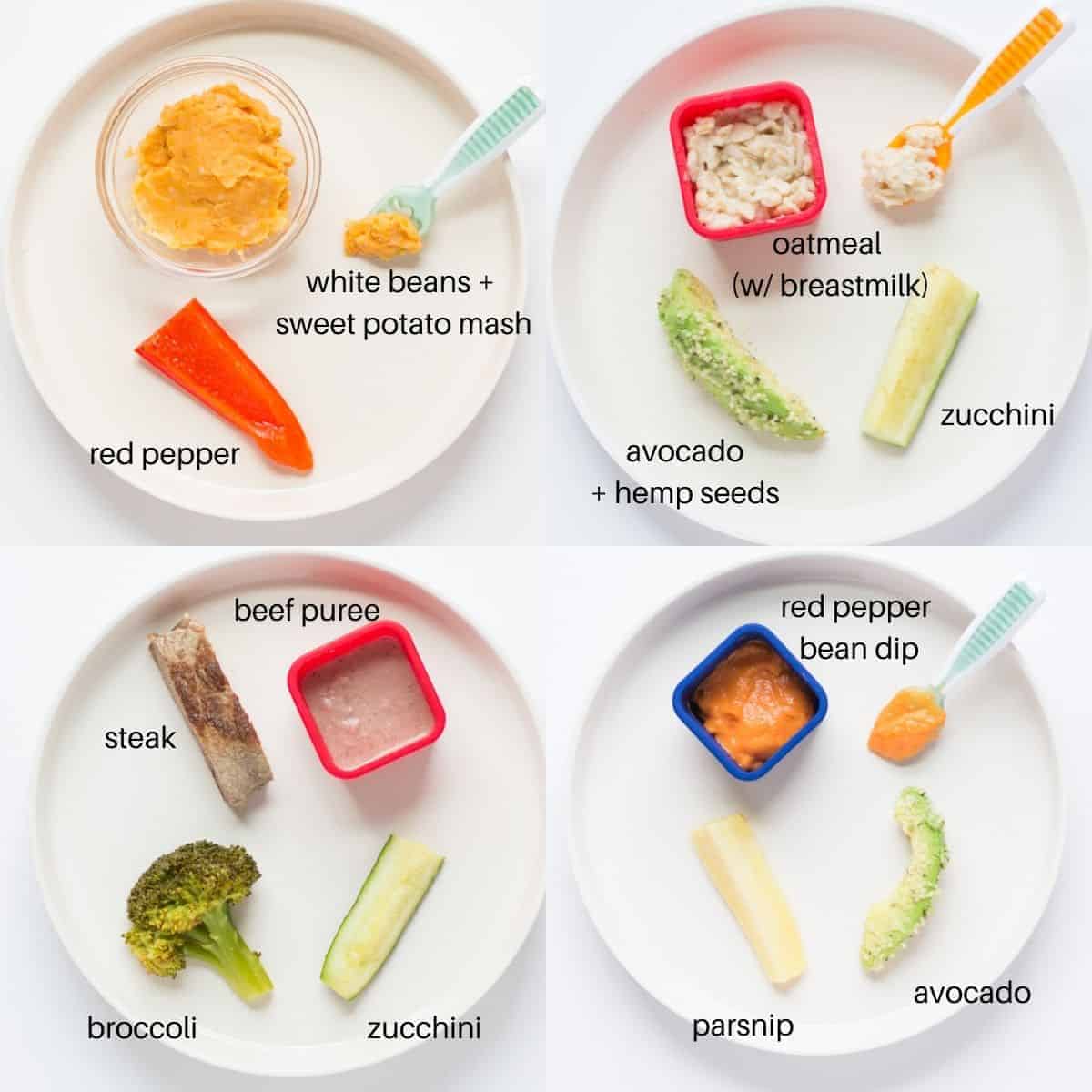As your precious 10-month-old embarks on the exciting journey of solid foods, providing them with nutritious and age-appropriate breakfast options is crucial for their optimal growth and development. This comprehensive guide will empower you with an array of easy and delectable breakfast recipes tailored specifically to meet the nutritional needs of your little one.
With a focus on essential nutrients such as iron, calcium, and more, these recipes will provide your baby with the building blocks they need to thrive. From smooth purees to finger foods that encourage self-feeding, this guide has something for every baby’s taste and developmental stage.
Introduction
Welcome to our comprehensive guide to baby breakfast recipes for 10-month-old babies! This article is tailored specifically for parents and caregivers who are eager to provide their little ones with nutritious and flavorful meals that support their growth and development.
As 10-month-old babies transition to solid foods, it’s crucial to introduce a variety of nutrient-rich options to meet their changing dietary needs. Breakfast is an essential meal that provides energy and sets the tone for the day. Our carefully curated recipes offer a balance of essential nutrients, including protein, carbohydrates, and healthy fats, ensuring that your baby starts their day on a healthy note.
Recipe Category
[Detailed recipe content here]
Nutritional Needs of 10-Month-Old Babies

As 10-month-old babies transition to solid foods, their nutritional requirements become more complex. They need a balanced diet that provides all the essential nutrients for optimal growth and development.Essential nutrients for 10-month-old babies include:
Iron
Iron is crucial for red blood cell production, which carries oxygen throughout the body. Iron deficiency can lead to anemia, which can cause fatigue, pale skin, and impaired cognitive development. Good sources of iron include fortified cereals, red meat, beans, and lentils.
Calcium
Calcium is essential for strong bones and teeth. It also plays a role in nerve and muscle function. Good sources of calcium include dairy products, leafy green vegetables, and fortified foods.
Other Essential Nutrients
In addition to iron and calcium, 10-month-old babies need a variety of other essential nutrients, including:
Protein
Essential for building and repairing tissues
Carbohydrates
Provide energy
Fats
Support brain and nervous system development
Vitamins
Essential for various bodily functions
Minerals
Play important roles in growth and developmentMeeting these nutritional needs is crucial for ensuring the healthy growth and development of 10-month-old babies.
Easy and Nutritious Breakfast Recipes
Breakfast is an essential meal for 10-month-old babies, providing them with the energy and nutrients they need to start their day. Here are a few easy and nutritious breakfast recipes that you can try:
These recipes are all packed with essential nutrients like protein, carbohydrates, and healthy fats. They are also easy to digest and can be easily incorporated into your baby’s daily diet.
Pureed Breakfast Recipes
| Ingredients | Instructions | Nutritional Information |
|---|---|---|
| 1/2 banana | Mash the banana with a fork or spoon until smooth. | Provides potassium, fiber, and vitamins B6 and C |
| 1/2 cup cooked oatmeal | Cook the oatmeal according to the package directions. Once cooked, mash it with a fork or spoon until smooth. | Provides carbohydrates, protein, and fiber |
| 1/4 cup plain yogurt | Mix the yogurt with the mashed banana and oatmeal. | Provides protein, calcium, and probiotics |
Finger Food Breakfast Recipes
| Ingredients | Instructions | Nutritional Information |
|---|---|---|
| 1 slice whole-wheat toast | Toast the bread until golden brown. | Provides carbohydrates and fiber |
| 1/2 cup berries | Wash and cut the berries into small pieces. | Provides antioxidants and vitamins |
| 1/4 cup shredded cheese | Shred the cheese and sprinkle it on the toast. | Provides protein and calcium |
Tips for Meal Planning and Preparation

Meal planning and preparation for 10-month-old babies should prioritize efficiency, food safety, and introducing new flavors and textures.
Planning
- Consider your baby’s hunger cues and feeding schedule to determine breakfast time.
- Plan meals in advance to avoid last-minute stress.
- Choose a variety of foods from all food groups to ensure nutritional balance.
Preparation
- Wash hands thoroughly before handling food.
- Use clean utensils and equipment.
- Cook foods thoroughly to kill any bacteria.
- Store leftovers properly to prevent spoilage.
Introducing New Foods
- Start with small amounts of new foods and gradually increase portions as your baby tolerates them.
- Offer a variety of textures to encourage chewing and development of oral motor skills.
- Be patient and persistent; it may take several attempts for your baby to accept a new food.
Troubleshooting Common Feeding Challenges
As your 10-month-old baby embarks on their culinary adventures, you may encounter some feeding challenges. Here are some common issues and practical solutions to help you navigate this exciting phase:
Picky Eating
-
-*Offer a variety of foods
Expose your baby to a wide range of flavors, textures, and colors to expand their palate.
-*Make mealtimes enjoyable
Create a positive and relaxed atmosphere during meals. Avoid distractions like TV or toys.
-*Avoid pressuring
Let your baby decide how much and what they want to eat. Forcing them can lead to negative associations with food.
Refusing Purees
-
-*Try finger foods
Offer soft, easy-to-grab finger foods like steamed veggies, fruit slices, or soft cheese cubes.
-*Introduce textures gradually
Start with smooth purees and gradually introduce lumpier textures as your baby’s chewing skills develop.
-*Mix purees with finger foods
Blend some purees into finger foods to make them more appealing.
Messy Eating
-
-*Provide a bib and a splat mat
Protect your baby and the surrounding area from spills.
-*Use a suction plate
A suction plate can help keep food in place and reduce messes.
-*Let them explore
Allow your baby to touch and play with their food. This helps them develop fine motor skills and sensory awareness.
Gagging or Choking
-
-*Check food size and shape
Cut foods into small, manageable pieces and avoid foods that can easily lodge in your baby’s throat.
-*Supervise carefully
Always stay close to your baby during meals and watch for any signs of gagging or choking.
-*Learn infant CPR
Knowing infant CPR can provide peace of mind and ensure you’re prepared in case of an emergency.
Slow Eating
-
-*Offer smaller portions
Give your baby smaller portions to prevent them from getting overwhelmed.
-*Take breaks
Allow your baby to take breaks during meals to rest and refuel.
-*Make mealtimes interactive
Engage your baby in conversation or play games to make eating more enjoyable.
Summary
Remember, every baby is unique, and their individual needs may vary. Consult with your healthcare provider for personalized advice and to address any specific dietary concerns.
With patience, creativity, and the guidance provided in this guide, you can create a delightful and nourishing breakfast experience for your precious 10-month-old.
FAQs
Q: How often should I offer my 10-month-old baby breakfast?
A: Aim to provide breakfast around 2-3 hours after your baby wakes up, or as recommended by your healthcare provider.
Q: What are some signs that my baby is ready for finger foods?
A: Look for signs such as good head and neck control, the ability to sit up with support, and an interest in grabbing and chewing objects.
Q: How can I introduce new foods to my baby safely?
A: Start by offering small amounts of one new food at a time, and observe your baby for any allergic reactions. Gradually increase the variety and quantity as tolerated.
